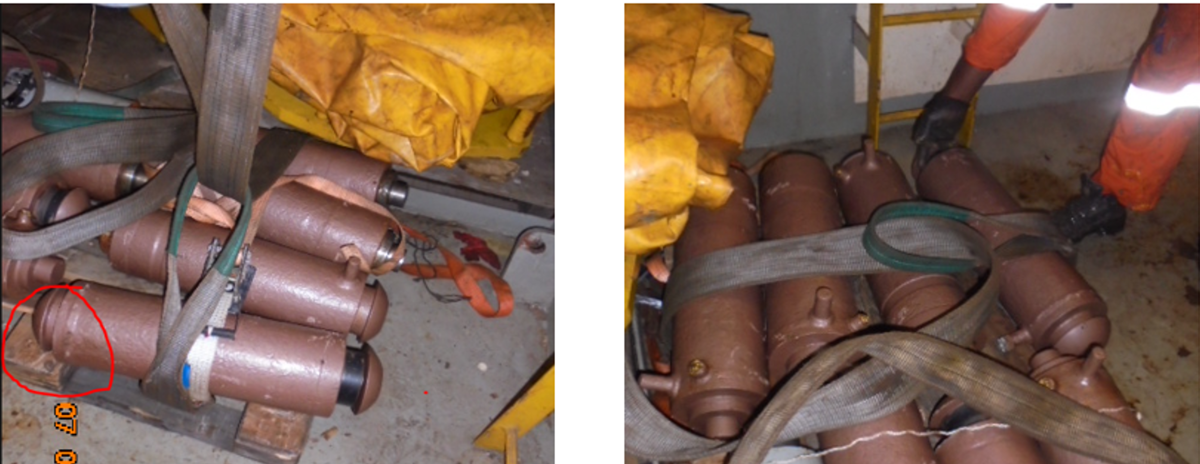Finger injury during lifting operations
- Safety Flash
- Published on 13 July 2023
- Generated on 27 February 2026
- IMCA SF 17/23
- 2 minute read
Jump to:
With a vessel alongside, crew were using the vessel crane to move a pallet of cylinders (part of the vessel’s hydraulic system) from one deck to another.
What happened?
This was in preparation for departure from port.
The Second Engineer passed by and decided to assist the crew in positioning the pallet.
When the pallet was moved into place, the engineer got one of his hands trapped below one of the cylinders, and the middle finger of his right hand was pinched and injured.

First aid was provided and the injured person was transferred to a local clinic for further medical examination. The vessel had to sail without him; he did light duties ashore afterwards.
The incident was classified as a Restricted Work Case (RWC ).
What went wrong?
- None of the crew involved in the lifting activity had had any formal training in lifting in spite of company procedures requiring this.
- The Second Engineer intervened to help – with the best of intentions – when he ought not have done. He was not part of the lifting crew, he did not attend the toolbox talk, nor was he part of the risk assessment discussions.
- No-one stopped the job – any one of the crew had the authority and obligation to stop the job and take time out to think things through.
- The Second Engineer was not wearing any gloves at the time as he was not part of the job.
What was the cause?
Congestion with other material and equipment made moving these cylinders necessary.
Actions
- Don’t just pitch in and help without thinking – that may not be any help at all!
- Keep the workplace neat, tidy and uncongested.
- Use the right PPE and gloves before starting work.
- Stop the job and rethink if the circumstances change.
Related safety flashes
-
IMCA SF 09/20
6 March 2020
-
-
IMCA SF 13/23
24 May 2023
-
-
IMCA SF 05/11
29 June 2011
IMCA Safety Flashes summarise key safety matters and incidents, allowing lessons to be more easily learnt for the benefit of the entire offshore industry.
The effectiveness of the IMCA Safety Flash system depends on the industry sharing information and so avoiding repeat incidents. Incidents are classified according to IOGP's Life Saving Rules.
All information is anonymised or sanitised, as appropriate, and warnings for graphic content included where possible.
IMCA makes every effort to ensure both the accuracy and reliability of the information shared, but is not be liable for any guidance and/or recommendation and/or statement herein contained.
The information contained in this document does not fulfil or replace any individual's or Member's legal, regulatory or other duties or obligations in respect of their operations. Individuals and Members remain solely responsible for the safe, lawful and proper conduct of their operations.
Share your safety incidents with IMCA online. Sign-up to receive Safety Flashes straight to your email.